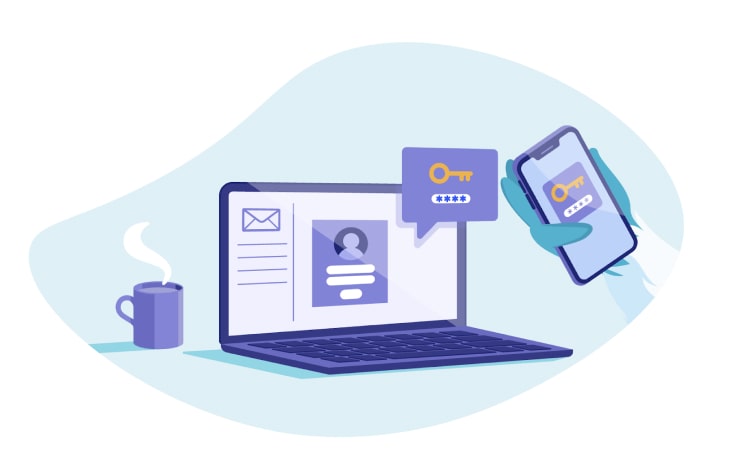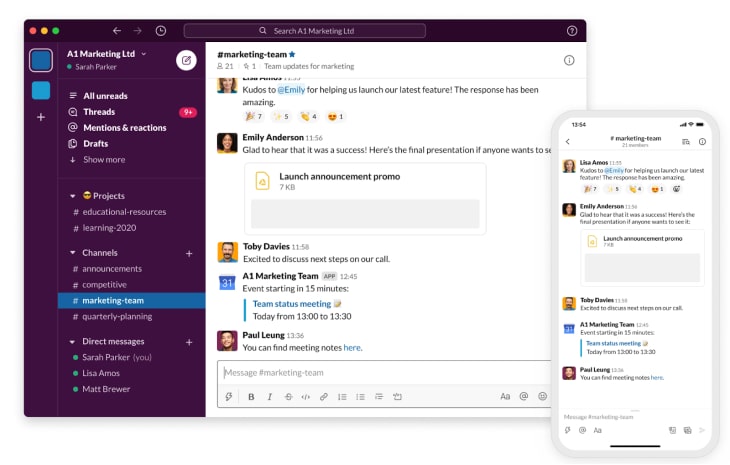
Top 7 Privacy Considerations for New Online Businesses to follow in 2021

For any online business, it’s important to focus intently on your privacy and security both when it comes to your personal data but that of your customers too. For any new online businesses, there are certain privacy considerations worth implementing and following this year.

With the right privacy settings in place, you can reduce the risks of cyber attacks and any of your confidential data ending up in the wrong hands. Here are some privacy considerations for new online businesses to follow in 2021.
1. GDPR Compliance
If you’re not already aware of it, then the General Data Protection Regulation is the toughest privacy and security law in the world and being GDPR compliant is essential to every business. When you’re handling confidential data that belongs to your customer, it’s critical that you have made a system that’s compliant and doesn’t go against any of the regulations in place.
It’s a fairly new regulation that has replaced the EU’s previous data protection directive and is worth knowing about, especially when operating outside as a business outside of the EU. It finally gives people a say over what data is stored and how it’s used.

One of the main issues that this tackles is where companies have been careless with their security or handling of data that isn’t theirs to begin with. So if they have a data breach, they could incur penalties as a result of having a privacy system that isn’t compliant according to GDPR law.
Even though GDPR can seem like a lot of hard work in the short-term, it’s going to likely lead to better long-term benefits. From improved user experiences to fewer data breaches across all companies, it’s worth the pain to become more compliant as an online business. Ensure your website’s GDPR compliant as well as any other areas where you store data.
2.Use cloud computing for secure storage of data
Businesses can often have a lot of data that they need to manage and even with a new online business, you may have lots of customer data to file away. If you don’t find the right storage solutions, it can make accessing the data a lot harder, especially when you have other employees who need to find this data too.
Cloud computing has become popular in recent years after it’s gone through its teething period when it comes to any new technology. There are many benefits of cloud computing and why you should implement it into your online business to improve privacy but also productivity.
It saves money
You may not want to consider cloud computing because of the price tag. However, the cost of switching to cloud computing is going to a small investment in the short-term for long-term savings. Just consider how much money you’ve spent already or projected to spend on upgrading server space and all the other costs you make towards data storage.
Most cloud computing software is also a pay-as-you-go, so you’re unlikely to spend money on features you don’t use.
Improves security
There are many security concerns that come with cloud computing due to the fact that they’re not stored somewhere on site. However, when you’re running an online business, you don’t want to be keeping your files within the homes of your employees. That is likely to have even more vulnerabilities in it’s security.
When shifting over to cloud-based storage solutions, a lot of what these cloud hosts do is carefully monitoring the security of your database.There will always be risks in security but by using cloud computing, you’re likely going to be much safer when it comes to the data you hold.
Offers flexibility
There’s only so much your business can do in a working day and when it comes to privacy, the cloud can offer more flexibility in meeting the demands that you require quickly and without much effort on your part.
Increases collaborations
With an online business, you’re likely working with others within the organization and externally. You therefore want something that’s easily accessible to everyone and encourages more collaboration between team members.
3. Train your employees to be security conscious
One of the biggest risks for businesses is human error. We’re all human and when it comes to security and privacy, your employees are likely to be the ones to make your online business more vulnerable to attacks and breaches.
With that being said, it’s always worth looking at ways in which you can train your employees to be more security conscious. Bring in an IT expert to teach the basics of safely navigating the internet or look for online courses whereby you can give all of your staff the knowledge they need to browse the web without compromising the security of the business.
There are a lot of advancements in cyber security both in methods to prevent cyber attacks but also to highlight how individuals and organizations are still falling victim. It’s good to keep your workforce updated with the latest methods and tricks that catch the average human being out. The more aware they are of the dangers, the better.
4. Use end-to-end encrypted messaging services
Keeping our data secure is more important than ever and one way to improve your privacy as a business is to make use of end-to-end encrypted messaging services. One of the most common forms is WhatsApp. Regardless of whether or not a cybercriminal hacked into your WhatsApp, they still wouldn’t be able to decrypt any conversations you’ve had.

As an online business, you might discuss a lot of confidential information through messaging services, rather than using emails. With a messaging service, the response time for all those involved in the chat, is likely to be a lot quicker.
It’s worth looking at what end-to-end encrypted messaging services are available and using these over just standard text messages or direct messaging via social media. In a fast-paced world, the need for encryption is essential when using various forms of communication.
5. Secure passwords and two-factor authentication
Passwords are a common flaw with many of us when setting up online logins, etc. A 2019 Google study found that 13% of people will reuse the same password for all their online accounts. A further 52% will use the same password for multiple accounts but not all and only 35% use a different password every time.
So when it comes to improving your privacy and security, creating secure passwords should be a priority. There are plenty of password software options that might be worth implementing into your business and across your entire workforce. It means all the passwords can be stored under one place and it automatically enters them when logging in.
This software will also create secure passwords for those who have a hard time in creating them.
Another feature to utilize is the two-factor authentication. Having layers of security in place before the user is able to access the account, can provide more comfort in the knowledge that everything is more secure.
With two-factor authentication, it will likely require the user to not only have the password but access to a phone or facial ID to gain access. You can also assign alerts to let you know when someone has logged into an account.
6. Use a VPN
A VPN is a private network which makes you untraceable. Many businesses, particularly online ones are using VPNs as a way to make their company’s security more secure and their privacy hidden away. It prevents software or websites tracking your data and it can be beneficial when transferring confidential information across the web.
By hiding your information with a VPN, it’s another layer of security to prevent your company from falling victim to a cyber attack of any kind. It also helps reduce support costs that would typically be handled by internal IT staff.
7. Make regular backups where required
Finally, backups are always that safety net when things go drastically wrong. Servers can crash and files can get lost or damaged in the event of a cyber attack or breach. By having both an on-site and off-site backup system in place, you can backup all your data with regular backups scheduled throughout the day.
It also makes it beneficial for your employees who have perhaps been working on projects and avoids them losing everything and having to start again. With regular backups you reduce the risk of falling behind and losing business as a result.
Privacy is of great importance to all businesses but especially those who operate online and where the risk of breaches and attacks may be elevated. With that said, use these tips and implement them into your company’s privacy and security strategy this year.

Natalie Redman
Email – natalieannredman92@gmail.com
Freelance writer for many clients including Skale, Natalie has two years of copywriting experience. Natalie has a wide range of experience copywriting for web pages for businesses across many industries. She’s also an owner of two blog websites and a Youtube content creator.